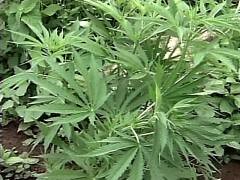Judge Tells Cops: Return the Pot Plants to the Defendants

Larimer County, Colorado District Court Judge James Hiatt ordered the cops to return 39 seized marijuana plants and a grow system to a couple who grew the plants as caregivers for themselves and a few other patients.
Brian Vincente, lawyer for the couple, hopes authorities have taken care of the plants as provided by the state's medical marijuana law, which was approved by voters in 2000.
"If they've allowed these plants to die, they've broken the law," said Vincente, executive director of Sensible Colorado, a non-profit advocacy group of medical marijuana patients. He described the ruling as the largest return of medical marijuana to a grower since the law went into effect.
If the plants were destroyed, Vincente said his clients will seek compensation for the plants, which he estimated to be about $100,000.
The prosecution is deciding whether to appeal the judge's order. [More...]
| < Replay: Rudy vs. Hillary 2000 | Rudy and Judi in Southampton: Guess Who Paid? > |



